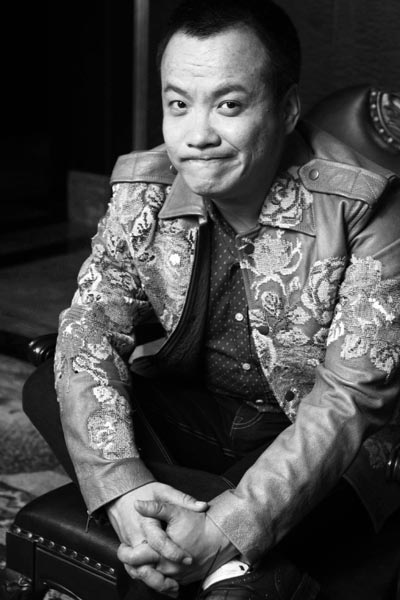 |
|
Director Ning Hao says that he is more prepared for changes in the future. (China Daily)
|
A number of directors tried to copy his successful formula by making more black comedies, but Ning was already thinking of something else.
He had been obsessed with the contradiction between the animal instincts and social identity of human beings. The issue intrigued him in his early days when he was making Mongolian Ping Pong, an independent film never released in theaters.
In 2004, during a one-month stay on the border of China and Mongolia, he found that skills he learned in a civilized society were actually not that useful. He had to observe the sky to tell the weather, discover directions without a device, find water source, and so on. "Human beings think they are a more superior species than other animals, but in certain environments they are not," Ning says. "What really makes us the most powerful on this planet is altruism, something we form a society on. The animal instincts and social identity co-exist in us and often fight, more fiercely in a perilous environment."
In No Man's Land Ning puts his protagonist, a shrewd lawyer-one of the professions most adept at handling human relations-on the Gobi Desert of Xinjiang in West China. He lost his mobile phone signals, car and money. His debating skills were of no use in front of a cruel falcon smuggler, a killer, a prostitute and two silly robbers. To survive, he struggled like an animal, but it was his social identity that fulfills his redemption.
He told his lead actor Xu Zheng to act as if he was a dog. "What does a dog do? Bite, eat, or it dies."
It is a style new to Chinese film. Violence, cruelty, lots of villains. Law and order turned futile. But it is in step with films by Quentin Tarantino, Sergio Leone and the Coen Brothers, in which the characters fight one danger after another on a remote, adverse territory.
We recommend:
